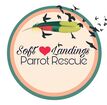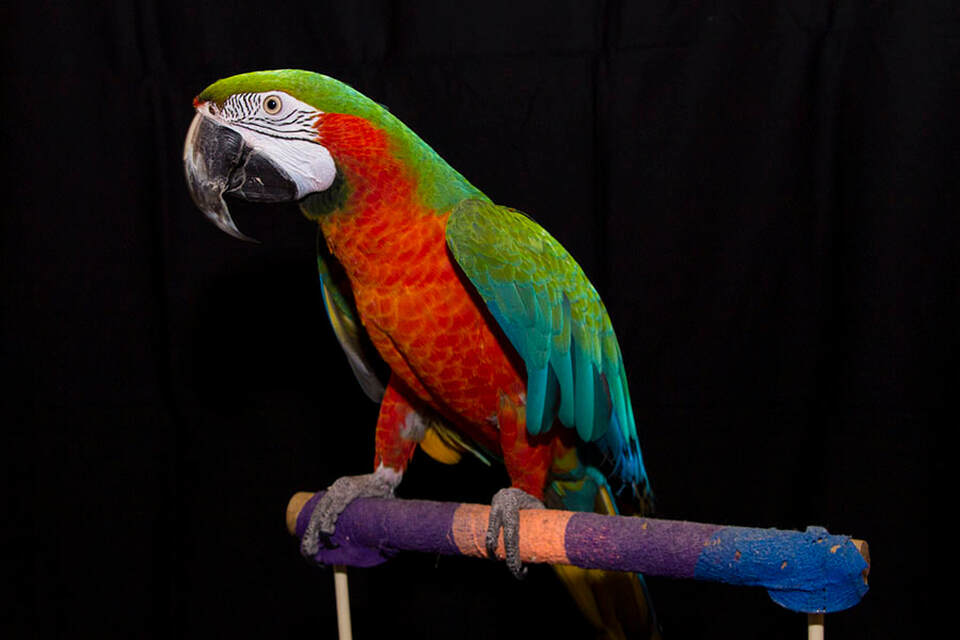-
Helping the Rescue
-
Volunteering at the Rescue
-
Adopting from the Rescue
-
Bird Behavior, Nutrition, and Care
-
Surrenders
-
Recommended Vets Contact Information
-
Household Hazards
<
>
- Yes, we love help! We accept PayPal donations at [email protected]. We spend a lot of money on vet bills and food. Other things we do accept are gift cards/certificates to- Southern Agriculture, MyBirdStore.com, Avianantics.com, and our Amazon wish-list. https://www.amazon.com/hz/wishlist/ls/3N3502AZQ2X00/ref=cm_go_nav_hz?pldnSite=1
- Smile- please link your Amazon to smile.amazon.com and designate us as your charity. When you shop, Amazon cuts us a check!
1. Who can help?
You must be at least 13 years of age. Volunteers who are age 13 through 17 must have written parental consent. For more information and to apply to volunteer, visit our volunteering page.
2. What are the requirements?
You must fill out paperwork and consent to a background check. We are a home-based rescue and we live here. See volunteer paperwork.
3. What will I be doing?
Scrubbing cages and cleaning cages, cleaning floors, helping feed and water, etc. You will be interacting with the birds, but your primary responsibility is care, not play.
You must be at least 13 years of age. Volunteers who are age 13 through 17 must have written parental consent. For more information and to apply to volunteer, visit our volunteering page.
2. What are the requirements?
You must fill out paperwork and consent to a background check. We are a home-based rescue and we live here. See volunteer paperwork.
3. What will I be doing?
Scrubbing cages and cleaning cages, cleaning floors, helping feed and water, etc. You will be interacting with the birds, but your primary responsibility is care, not play.
We encourage you to keep an open mind when coming to meet the birds. You may have a specific bird in mind when you come visit but once you come and meet all the birds you may find that you and another bird have a very strong connection.
The birds get to help choose their new family.
The adoption application must be completely filled out and reviewed by the adoption committee prior to scheduling a visit.
We will require more than one visit to spend time with the birds, we also consider this education time.
A home visit is required prior to a bird being placed in a home. The home visit is solely to ensure safety in the new home. We aren't coming to judge only assist in making sure there are no safety issues.
We highly encourage foster to adopt once you have matched with a bird to allow everyone time to get comfortable.
The birds get to help choose their new family.
The adoption application must be completely filled out and reviewed by the adoption committee prior to scheduling a visit.
We will require more than one visit to spend time with the birds, we also consider this education time.
A home visit is required prior to a bird being placed in a home. The home visit is solely to ensure safety in the new home. We aren't coming to judge only assist in making sure there are no safety issues.
We highly encourage foster to adopt once you have matched with a bird to allow everyone time to get comfortable.
|
My bird bites!
|
I think my bird is sick/something is wrong with my bird.
|
Required Information
We need to know species, age, health history, and diet before we consider taking in a bird. Sometimes we have room for one type of bird but not another. Sometimes we try to coordinate or find placements in another rescue/sanctuary. We DO have a wait list for surrenders. Emergency placements are considered on a case by case basis.
Paperwork & Fees
If your bird is surrendered to Soft Landings we will send you a Surrender Form and Parrot History Form.
We are a home based rescue that relies upon donations from our supporters. At this time we do not have a required surrender fee, but we do incur costs of at least $150.00 immediately upon surrender as all new birds to our rescue are seen by a vet. We would appreciate a donation to help cover those costs.
We need to know species, age, health history, and diet before we consider taking in a bird. Sometimes we have room for one type of bird but not another. Sometimes we try to coordinate or find placements in another rescue/sanctuary. We DO have a wait list for surrenders. Emergency placements are considered on a case by case basis.
Paperwork & Fees
If your bird is surrendered to Soft Landings we will send you a Surrender Form and Parrot History Form.
We are a home based rescue that relies upon donations from our supporters. At this time we do not have a required surrender fee, but we do incur costs of at least $150.00 immediately upon surrender as all new birds to our rescue are seen by a vet. We would appreciate a donation to help cover those costs.
|
Tulsa
Dr. Cheryl Pfeffer Animal Medical and Surgical Hospital 7140 S 69th E Ave, Tulsa, OK 74133 918-492-2674 Oklahoma City Dr. Minson Stoneridge Animal Hospital 808 S Kelly Ave, Edmond, OK 73003 405-359-3340 |
Neel Vet
24 hour emergency 2700 N MacArthur Blvd, Oklahoma City, OK 73127 405-947-8387 Stillwater OSU College of Vetrinary Medicine McElroy Hall, 208 S McFarland St, Stillwater, OK 74078 405-744-6651. |
B. Toxic Plants- Acokanthera – Acokanthera spp. (all parts toxic, except ripe fruit) Amaryllis – Amaryllis spp. Angel’s Trumpet – Datura spp. Apricot – Prunus armeniaca (pits, leave, and bark) Apple – Malus spp., (seeds, leaves, bark) Avocado – Persea Americana Azalea – Rhododendron canadenis Balsam Pear, Bitter Melon – Momordica charantia Baneberry – Actaea rubra, A. pachypoda Belladonna – Atropa belladonna Bird of Paradise – Poinciana and related spp. Bittersweet – Celastrus spp. Black Locust – Robinia pseudoacacia Boxwood – Boxus spp. Braken Fern – Pteridium aquilinum Buckthorn – Karwinskia humboldtiana and related spp. Burdock – Arctium spp. Buttercup – Ranunculus spp. Caladium – Caladium spp. Calla Lily – Zantedeschia aethiopica Catclaw Acacia – Acacia greggii (twigs and leaves) Caster Bean – Ricinus communis Cherry – Prunus spp. (pits, leaves and bark) Chinaberry – Melia azadarach Clematis – Clematis montana and related spp. Coral Plant – Jatropha mutifida Crocus (autumn) – Cholochicum autumnale Cycad or Sago Cycas – Cycas revoluta Daffodil – Narcissus tazetta Daphne – Daphne mezerum Death Camas – Zigadenus venenosus and other related species Delphinium – Delphinium spp. Devil’s Ivy – Epipremnum aureum Dieffenbachia (dumb cane) – Dieffenbachia spp. Eggplant – Solonum melongena (unripe/ripe fruit, leaves) Elderberry – Sambucus mexicana (roots, leaves, stems, bark) Elephant’s Ears or Taro – Colocasia spp. Euonymus – Euonymus spp. European Pennyroyal – Mentha pulegium Figs – Ficus spp. (sap) Four o’clock – Mirabilis jalapa Heliotrope – Heliotropium spp. Henbane – Hyoscyamus niger Holly – Ilex aquifolium and related spp. (leaves, berries) Horse Chestnut – Aesculus hippocastanum and related spp. Horse Nettle – Solanum carolinense Hyacinth – Hyacinthus orientalis Hydrangea – Hydrangea spp. Iris – Iris spp. Ivy – Hedera spp. (Boston, English and some others) Jack-in-the-Pulpit – Arisaema spp. Jerusalem Cherry – Solanum pseudocapsicum and related spp. (leaves, seeds and flowers) Jonquil – Narcissus jonquilla Juniper – Juniperus spp. Lantana – Lantana camara Larkspur – Delphinium spp. Laurel – Kalmia spp. Lily-of-the-Valley – Convalleria majalis Lobelia – Lobelia spp. Locoweed – Astragalus spp. and Oxytopis spp. Lupine – Lupinus spp. Marijuana – Cannabis sativa Milkweed – Asclepias spp. Mistletoe – Phoradendron villosum Mock Orange – Philadelphus spp. Moonseed – Menispermum canadense Monkshood – Aconitum spp. |
Mistletoe – Phoradendron villosum
Mock Orange – Philadelphus spp. Moonseed – Menispermum canadense Monkshood – Aconitum spp. Morning Glory – Ipomoea violacea (seeds) Mushrooms – Amanita spp. And many others Narcissus – Narcissus spp. Oak – Quercus spp. Morning Glory – Ipomoea violacea (seeds) Mushrooms – Amanita spp. And many others Narcissus – Narcissus spp. Oak – Quercus spp. Oleander – Nerium oleander Peach – Prunus persica (leaves, pit, bark) Pear – Pyrus spp. (leaves, seeds, bark) Peony – Paeonia officinalis Periwinkle – Vinca minor, Vinca rosea Peyote – Lophophora williamsii Philodendron – Philodendron spp. and Monstera spp. Plum – Prunus spp. (leaves, pit, bark) Poison Hemlock – Conium maculatum Poison Ivy – Toxicodendron radicans, includes T. rydbergii Poison Oak – Toxicodendron querciflium and T. diversilobum Poison Sumac – Rhux vernix Poinsettia – Euphorbia pulcherrima Poppy – Papaver somniferum and related spp. Pokeweed – Phytolacca Americana Potato – Solanum tuberosum (sprouts, leaves, berries, green tubers) Pothos – Eprimemnum aureum Primrose – Prmula spp. Privet – Ligustrum vulgare Ragwort – Senecio jacobea and related spp. Red Maple – Acer rubrum Rhododendron – Rhododendron spp. Rhubarb – Rheum rhabarbarum (leaves) Rosary Pea – Abrus precatorius Sage – Salvia officinalis Shamrock Plant – Medicago lupulina, Trifolium repens, Oxalis acetosella Skunk Cabbage – Symplocarpus foetidus Snowdrop – Galanthus nivalis Sorrel – Rumex spp., Oxalis spp. Spurges – Euphorbia spp. Star of Bethlehem – Ornithogalum umbellatum Sweet Pea – Lathyrus odoratus Tobacco – Nicotiania spp. Tomato – Lycopersicon esculentum (stems and leaves) Tulip – Tulipa spp. Virginia Creeper – Panthenocissus quinquefolia Vetches – Vicia spp. Water Hemlock – Cicuta spp. Waxberry – Symphoricarpos albus Wisteria – Wisteria spp. Yew – Taxus spp C. Foods Alcohol Apple Seeds Avocado Caffeine Chocolate Fruit Pits Garlic Mushrooms Onions Salt Tomato Leaves Uncooked, dried kidney beans Xylitol 2. Kitchen- Boiling pots of water, stove, oven, dishwasher, blenders, refrigerator, knives. 3. Miscellaneous- Ceiling fans, Windows, Electrical Cords, Sticky Traps, Doors, Other pets/animals, toilets, fish tanks/bowls. |
DonateWe are a home based rescue providing a vital service for neglected and vulnerable parrots and birds in Oklahoma. However, providing this service can be challenge, if you are able consider donating to Soft Landings Parrot Rescue.
|
VolunteerAt Soft Landings Parrot Rescue we are always looking for curious minds, empathetic beings, and giving hearts. If this describes you, feel free to volunteer and find a new love. All Volunteers must fill out Liability Release.
|


